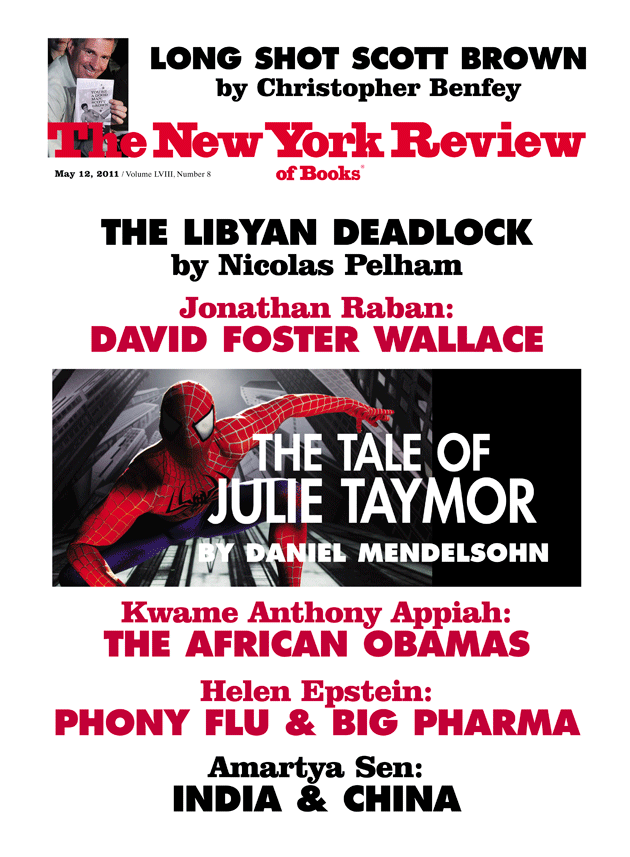In response to:
The Panorama of Ford Madox Ford from the March 24, 2011 issue
To the Editors:
Edmund White, in his imaginative essay on Ford Madox Ford [NYR, March 24], kindly credits me with the editorship of all four volumes of Carcanet’s new critical edition of Parade’s End. I wish I were that industrious, but I have to confess that the edition is a collaborative project, and though the editorial team of four worked closely together throughout, I can only be held to account for the first volume, Some Do Not…, the others being edited by Joseph Wiesenfarth, Sara Haslam, and Paul Skinner, respectively.
Mr. White suggests that the reason Parade’s End might be “due for a revival” is “because it is panoramic and beautifully written,” which is true on both counts, and perhaps why Tom Stoppard has been drawn to adapt it for a forthcoming BBC series. But Mr. White’s view that such a revival would not be on account of the novels’ “large historical or philosophical truths” seems to Ford’s editors to sell Parade’s End short. What it is panoramic about, after all, is the First World War, what it meant for civilization, and what it did to men’s and women’s minds. Its editors believe, with Anthony Burgess, that it is “the finest novel about the First World War”; with Samuel Hynes that it is “the greatest war novel ever written by an Englishman”; and with Malcolm Bradbury that it is “a central Modernist novel of the 1920s, in which it is exemplary.”
Max Saunders
King’s College London
London, England
Edmund White replies:
My admiration for Ford’s Parade’s End should be evident from my review, as should be my thought that Ford rendered the war in both a detailed and a “panoramic” way. The only point I was making is that unlike the narrator in Proust, who makes direct and comprehensive comments on the long-lasting social effects of the war, Ford has no overarching narrator and relies on the reflections of his various characters, who are each embedded in a particular dramatic moment.
This Issue
May 12, 2011


